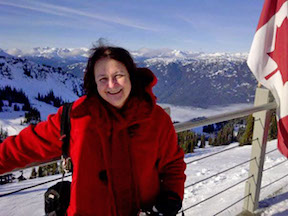“Memphis Blues”:
- Read the sections out loud. What are the rhythms of each? What is the effect of their respective sound patterns?
- Why do you think the poet/speaker appeals to the memory of Nineveh, Tyre and Babylon? What does he/she mean by, “Was another Memphis/ Mongst de olden days”?
- What is the speaker’s attitude towards the projected destruction of his/her city? Why do you think he claims he won’t worry about it?
- In the second section, what will each of the persons named be doing during the projected burning of Memphis?
- What are some of the poem’s forms of humor? What do you think is the point/significance/purpose of this poem?
“Strong Men”:
- What is the poem’s form? Is it appropriate for its content?
- What portions of African-American history are described? What is the response of the enslaved/oppressed?
- How do contrasting rhythms help convey the poem’s meaning?
- In the speaker’s view, what problems are still faced by his people? To what do you think he may be referring in 1931? What response by people of color does the speaker consider most effective?
- What image underlies the poem?
“Ma Rainey”:
Ma Rainey was one of the first famous blues singers recorded on records, known for her moaning style. The "Backwater Blues," written by Bessie Smith, is thought to refer to a 1926 Tennessee flood.
1. To what music does the poem refer? How do the rhythms shift between sections? How do these shifts help us feel the emotions of the poem?
2. Where is the poem set? Does it matter that we know the specific place? Why is it important that the speaker doesn't speak in entirely standard English?
3. Who are Ma Rainey's audience? Why are they so attracted to her music? What does the poet believe is her relationship with them:
4. What problems does she sing of? What may be some reasons why the listeners respond to the description of a house falling down in a flood?
5. Why would Ma Rainey have seemed so important that Brown chose to write a poem about her?
6. What different points of view do we get in the poem? Whose responses to Ma Rainey are we left with at the end?
7. Is this a cheerful poem? A desolate poem? Both?
“Sam Smiley”:
- What is the poem’s form and language register? How are these different from that of the other Stirling Brown poems we’ve read? Why do you think the author may have chosen them?
- What are ironic aspects of the account in section I? What does Sam learn from the war?
- What is referred to by his “dreams of one/ Chockfull of laughter, hot of blood”?
- On returning home, what does he find has gone wrong, and why? What is his response?
- What is his end? What is the effect of the puns on “buckdancing”?
- What do you think is the poem’s final tone and/or message?
